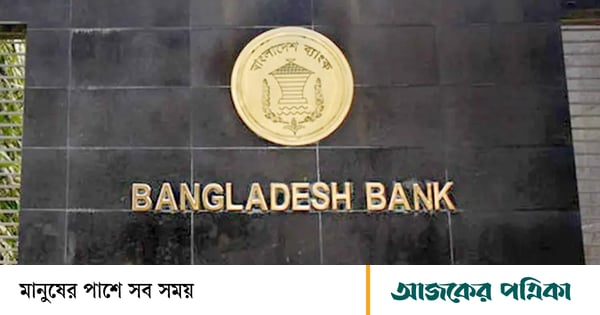Bangladesh Bank has started providing liquidity support to weak banks in order to restore customer confidence. 18,500 crores was given from the vault to 5 weak banks on Monday. The next day, Tuesday, two more banks received two and a half thousand crore rupees.
Sources said that the governor has initially indicated to provide assistance of Tk 70 thousand crore to the weak banks.
According to sources, Bangladesh Bank has provided liquidity support to private sector banks National Bank, Exim Bank, Social Islami Bank and First Security Islami, Union Bank, which were suffering from liquidity crisis mainly due to widespread irregularities during the Awami League period. This money has been given to the private banks by signing the white paper as the central bank bonds have run out.
On August 20, Governor Ahsan H. Mansoor, in response to a question from reporters, said that weak and troubled banks will not be helped by printing money. No solution can be found by printing money for the bank.
Then on September 4, he reiterated his promise saying, 'In order to keep the 'weak' bank in liquidity crunch, cash loan assistance will be arranged from the interbank market through guarantees, taking into account various calculations.
In that way, the weak banks have borrowed about 15 thousand crore rupees. But as the crisis did not go away, the central bank is once again providing liquidity support.
According to sources, First Security Islami Bank (FSIBL) has taken liquidity assistance of Tk 7,900 crore from the Central Bank on Monday. National Bank has taken assistance of 7.5 thousand crore rupees. Other 5 three banks have taken about 6 thousand crore rupees.
A deputy governor of the central bank said on condition of anonymity that the governor of Bangladesh Bank took the information from the meeting with the chairman and managing directors (MD) of the bank last Tuesday morning. Ahsan H. Mansoor. Later, the governor held a separate meeting with the chairman-MDs of each bank. The governor has given an idea about the amount of financial assistance that will be given to a bank. In all, the weak banks have given a demand of 70 thousand crore rupees. The central bank will give Rs. And to control inflation, the central bank will withdraw money from banks through bills and bonds. And if the World Bank, IMF and any donor agency raises questions about the aid by printing money for the condition of loan waiver, it will be explained.
National Bank Chairman Abdul Awal Mintu confirmed the meeting with the Governor regarding the liquidity support of the banks. He said, liquidity support has been re-introduced to restore customer confidence.
According to sources, after August 5, banks were not agreeing to open S Alam Group's LC. In such a situation, the governor also instructed the banks to open LCs of edible oil, sugar and flour-flour companies owned by S Alam Group to ensure the import of daily necessities before Ramadan.
Secretary of the Financial Institutions Department, Najma Mubarek, said in a press conference of the Ministry of Finance last Tuesday, “You will soon see new initiatives to help banks that are unable to return money to depositors due to the financial crisis.”
At least 12 banks, including the discussed 5 banks, are in extreme liquidity crisis due to various loan frauds and irregularities during the Awami era. Eight of these banks were owned by the controversial conglomerate S Alam Group. Despite these irregularities, Bangladesh Bank Governor Abdur Rauf Talukder during Sheikh Hasina's tenure did not take any action against these institutions. In this situation, the liquidity crunch deepened, but despite the current account deficits of these banks, the bailouts were approved in violation of the central bank's regulatory rules.

